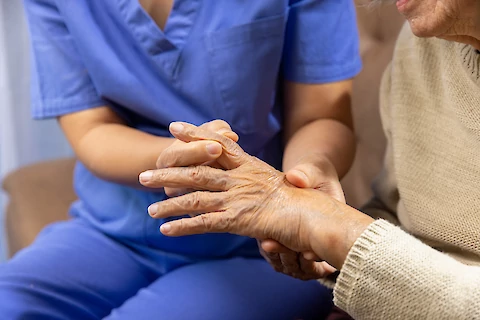
Chronic pain can drastically impact the quality of life for seniors, often disrupting daily routines and causing discomfort that is far from trivial. As the population ages, effective management of long-term pain becomes increasingly critical. This is where in-home caretakers come into play. These professional aides can offer invaluable support in managing pain, promoting independence, and fostering a higher quality of life.
Chronic Pain Perspectives in the Elderly
Chronic pain, defined as persistent pain lasting more than three months, is common among seniors. Arising from various sources like arthritis, nerve damage, or diseases such as cancer, it's a discomfort that refuses to let go. The impact extends beyond physical suffering; it also holds the potential to disrupt sleep, lower mood, and reduce mobility.
Practical Strategies for Chronic Pain Management
Tackling chronic pain doesn't always mean reliance on medication. Several practical, everyday strategies can contribute significantly to pain management, such as:
Exercise
Regular, light exercise, for instance, can keep the joints flexible and strengthen muscles, thereby reducing pain over time. Even simple activities like walking or gardening can make a difference. You should always check with your doctor before starting new exercises.
Diet
Maintaining a balanced diet is another key aspect. Nutritious food packed with vitamins, minerals, and proteins can bolster the body's defenses, assist in better weight management, which might impact joints, and even combat inflammation linked to pain.
Sleep
Ensuring you get adequate rest and sleep is crucial. Rest allows your body to restore and repair, while good sleep can interrupt the cycle of chronic pain and improve mood.
Mindfulness Practices
Mindfulness practices and relaxation techniques, such as meditation, deep breathing, or yoga, can help manage pain by reducing stress and assisting individuals to redirect focus away from discomfort.
Lifestyle Adjustments for Pain Management
Apart from these strategies, some lifestyle adjustments can further aid in managing chronic pain. These can include:
Living Environment
A comfortable, safe living environment is vital; consider supportive footwear, strategically placed furniture, and non-slip mats in bathrooms.
Check-Ups
Regular medical check-ups help keep track of health conditions that could contribute to the pain.
Social Activities
Meanwhile, engaging in social activities and nurturing hobbies can distract from the pain and boost emotional well-being.
Avoid Triggers
Wherever possible, it's also important to avoid known triggers that might exacerbate pain.
Senior Helpers Denver North Helps Seniors Manage Chronic Pain
Chronic pain management is essential to improving seniors' quality of life. Practical strategies like regular exercise, a balanced diet, adequate rest, and lifestyle adjustments can significantly reduce discomfort.
Our team at Senior Helpers Denver North is committed to delivering pain management techniques and facilitating improved quality of life for seniors across Denver, Broomfield, Arvada, Westminster, and Commerce City.
If you or a loved one need assistance in managing chronic pain right at home, don't hesitate to reach out. Let's work together to manage pain and rediscover joy in the everyday.